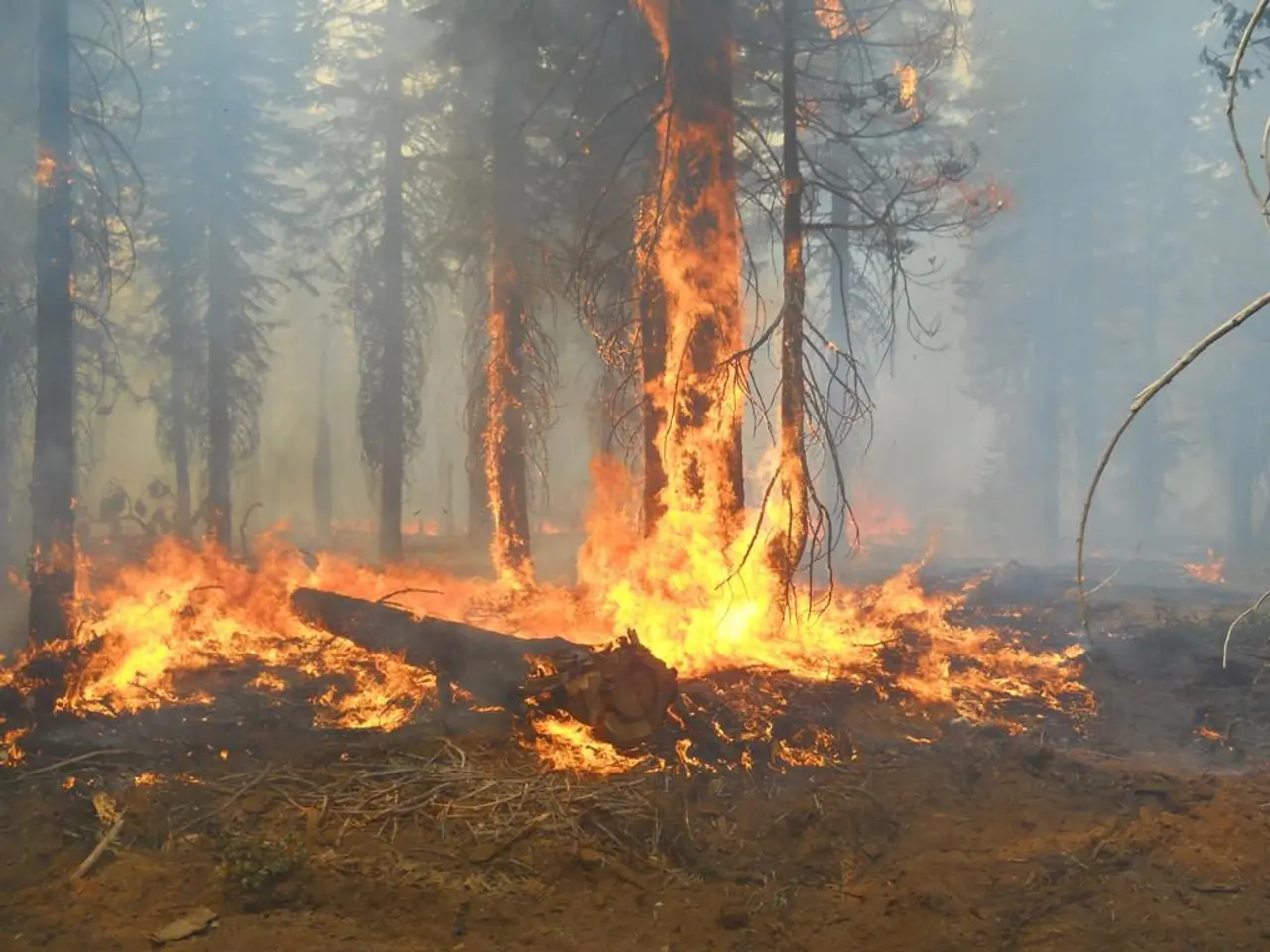Let's Talk About the USDA's Plan to Scrap the 2001 Roadless Rule
Administration of Trump to authorize exploration of untouched forests for mining and woodcutting
The USDA has set its sights on axing the 2001 Roadless Rule, a spine-chilling Clinton-era law that prohibited mining, road construction, and logging in virgin forests. The Trump administration is itching to unlock the potential of undeveloped forests, considering these as bottlenecks to corporate expansion. This move will affect approximately 59 million acres of federal forest lands, opening the gates for novel forest management methods.
This controversial move was championed by Agriculture Secretary Brooke Rollins at a Western Governors' Association meeting in Santa Fe, with a mission to improve forest management and slash fire risk. However, it has reignited a heated debate about balancing economic growth and environmental preservation.
A New Era of Active Forest Management
Scrapping the Roadless Rule will potentially allow mining in uncharted forests, streamlining forest management, especially in taming wildfires that have plagued areas like the American West. As Secretary Rollins stated, "After the repeal of this rule, we're moving back to common-sense forest management to ensure our forests are here for generations to come." The updated regulation is likely to make mining and logging operations a cinch, bolstering local economies by creating jobs and supporting industries that rely on minerals and timber.
On the flip side, environmental enthusiasts are up in arms, fearing potential long-term ecological damage. These forested territories serve as vital wildlife habitats and watersheds, ensuring clean water supplies. Critics warn that increased road construction and logging could trigger deforestation, raise carbon emissions, and disrupt ecosystems that are already battling the effects of climate change. Some believe that the USDA's focus on fire risk management is nothing more than a smoke screen that ignores the broader environmental fallout.
Some Background and Future Ramifications
The Trump administration has long had a bone to pick with the Roadless Rule. In an attempt to kickstart Alaskan economic activity, the 2020 Tongass exemption was embroiled in legal battles and ultimately revoked by President Joe Biden in 2023. The latest ruling marks a return to the pre-2001 system when forest management prioritized industry access over preservation. Environmental organizations are bracing for court battles, contesting the repeal under environmental regulations such as the National Environmental Policy Act.
This policy shift could set a precedent for future land-use decisions, weighing financial benefits against environmental costs. The outcome may have lasting consequences for managing federal lands, from biodiversity conservation to wildfire prevention. The fate of America's untouched woods is hanging by a thread, and the nation's commitment to eco-friendly resource use will face stern tests as legal skirmishes loom.
Author
- Sarah Tancredi is an ace journalist with a special interest in environmental and climate crisis issues. With a zeal for Mother Earth and a mission to inform the public and promote sustainable solutions, Sarah provides vivid insights into pressing environmental dilemmas. She inspires people, communities, and policymakers to take action to safeguard our planet for future generations.
Check Out More From Sarah:Central India Experienced Intense Monsoon Activity, Rainfall To Continue: IMDForever Chemicals Detected in Nearly Every UK River, Raising Concerns Over Water Quality
- The USDA's decision to rescind the 2001 Roadless Rule has sparked a debate over the balance between economic growth and environmental preservation, particularly in the context of ESG reporting, where companies are expected to consider environmental impacts in their decision-making processes.
- The move to streamline forest management, potentially allowing mining and logging jobs to flourish, has raised concerns among environmental scientists and advocates, who fear long-term ecological damage, deforestation, increased carbon emissions, and disruption of wildlife habitats and watersheds in the face of climate-change.
- As the policy-and-legislation surrounding this decision unfolds, journalists such as Sarah Tancredi, with a focus on environmental and climate crisis issues, will be at the forefront of reporting on the general-news implications, including the potential consequences for federal land management and the nation's commitment to eco-friendly resource use.
- With the revised regulation paving the way for a new era of active forest management, the environmental-science community is closely monitoring the repercussions of this policy shift, which could establish a precedent for future land-use decisions and the relationship between politics, environmental policy, and the management of natural resources.
- In time, the ongoing legal battles surrounding the USDA's repeal of the Roadless Rule could reshape the landscape of environmental-science jobs, particularly for those working in forest management, wildfire prevention, and conservation, as they grapple with the evolving policy-and-legislation and the broader implications for America's environmental future.







